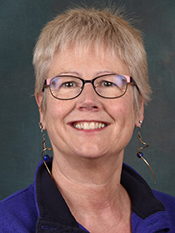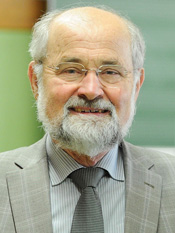Professor Jane Langdale, of the Plant Sciences Department at the University of Oxford, and Professor Erwin Neher, of the Max Planck Institute for Biophysical Chemistry in Germany, have been admitted as Corresponding Members of the Australian Academy of Science for their outstanding contributions to science.
Corresponding Members of the Academy are eminent scientists not resident in Australia. They are elected based on scientific excellence, with consideration given to their connection to Australian science. The Academy will announce the election of 24 distinguished Australian scientists as New Fellows later this month.
Professor Jane Langdale FAA

Photo: supplied
Professor Jane Langdale’s research has transformed our understanding of how plants initiate leaves, how leaves adapted to major evolutionary transitions and how those changes affect photosynthesis in land plants.
She has explained various plant mechanisms, including organ inception and specification at the tip of shoots, patterning of distinct cell-types and the development of chloroplasts.
Importantly, Professor Langdale has carried out research in a comparative framework, advancing our understanding of leaf development not just in model flowering plant species but in species from all of the major land plant lineages.
What are you most proud of in your research?
“The people I have worked with over the years. Any recognition of my research is recognition of the wonderful people who have contributed to the discoveries that we have made-from the technicians who wash the lab glassware to the postdocs who challenge my ideas and prove me wrong.”
What does your election to the Academy mean to you?
“I have family, friends and many colleagues in Australia, and to be recognised by the national Academy is an incredible honour. I hope that I am able to contribute to the Academy’s mission in a meaningful way.
“Science should never be a single nation endeavour. Interactions and collaboration between people from different cultures, with a broad range of views and experiences, are essential for the synergy that fuels truly original and creative scientific advances.”
Professor Erwin Neher FAA

Photo: supplied
Professor Erwin Neher is a world-renowned biophysicist specialising in the field of cell physiology. He is internationally known for his ground-breaking development of the patch clamp technique and further discoveries concerning the function of single ion channels in living cells, which allow cells to communicate with their surroundings.
Using this technique, Professor Neher was able to take ion channels from a physiological concept to the reality of biological macromolecules, revolutionising modern biology, facilitating research, and contributing to the understanding of the cellular mechanisms underlying several diseases including diabetes and cystic fibrosis.
For his outstanding contributions, in 1991 he was awarded, along with Bert Sakmann, the Nobel Prize in Physiology or Medicine.
What are you most proud of in your research?
“Following the development of the patch clamp, researchers worldwide adopted this technique for the study of diseases and drug action. Although I never did clinical work myself, this indirectly led to novel medications and improved therapies, which I am proud of.”
What does your election to the Academy mean to you?
“I first visited Australia in 1985 and since then kept contact with many of my colleagues. I consider election to the Academy as a major recognition of my work and as a unique chance to maintain contacts.
“The laws of nature do not distinguish between countries and continents. The goal of science is to decipher these laws and scientists share their insights in this respect in a remarkable way. Most of us see our task as a joint effort, which is substantially enhanced by international cooperation.”
Professor Langdale and Professor Neher join just 33 Corresponding Members of the Academy, including Nobel Laureates Professor Elizabeth Blackburn and Professor Rolf Zinkernagel and Fields Medal recipient Professor Akshay Venkatesh.








